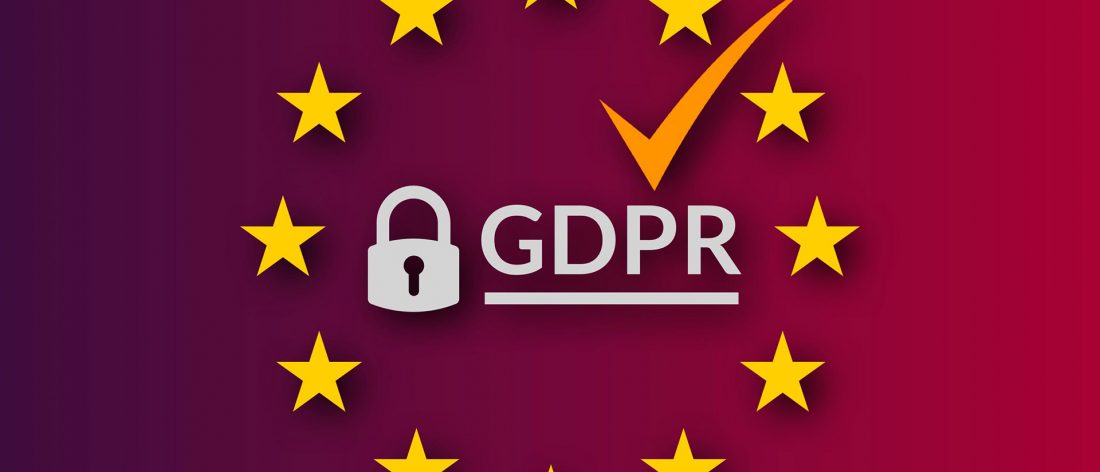If you have not checked your emails in a while, chances are that you are not familiar with the word GDPR. To those who have been accepting the updates of privacy policies via email from a large number of companies, we know you are tired of reading the word GDPR in every possible email that you’ve been receiving lately. Still, how much do you know about it? We will try to have the GDPR explained as much as we can today.
GDPR stands for Global Data Protection Regulation and its importance can’t be undermined keeping in mind the recent Facebook data scam where Facebook allegedly accessed data of several of its users and provided it to multiple corporations and political organizations. Thus to find yourself in a position of power, where you can check the data and at the same time edit whatever personal information you wish to, so that no corporation has the data you don’t want them to own about you, is rather useful in our time and age.
The long ongoing battle finally settles down
The battle to approve the GDPR was ongoing for 4 years before it was approved by the European Union on 14th April 2016. The enforcement date was set to be 25th of May post which, the corporations were brought under the crosshairs of hefty fines.
This policy was brought in to replace the Data Protection Directive 95/46/EC which was based on the guidelines provided by the Organization for Economic Co-operation and Development (OECD) and done specifically to ensure a secure, data privacy law that protects not only the citizens in the countries across Europe, but also for all the European citizens across the world.
What made GDPR see the light?
European Union has always placed its citizen’s needs above that of businesses. Thus it is safe to suggest that GDPR was brought to put the maximum level of security over the data of European citizens, owned by corporations across the world. The new law in place could be seen as being inspired by the charter of the European Union in which one of the articles clearly states: ““The protection of natural persons in relation to the processing of personal data is a fundamental right.”
The US on the other hand has tried to put the needs of the corporations and businesses over its citizens for a long time now. Although the companies in the US have shown least possible flexibility in terms of accessing personal data in the past, this has changed dramatically as the new GDPR articles clearly prohibit every corporation, owning data of European citizens, from hiding their personal information. If they cannot do the same, they are instructed to block the users from EU from accessing their websites altogether, which is let’s say, not feasible for them.
What is covered by the GDPR?
GDPR was brought in to provide clear and ultimate control of personal data to its owner which corporations have saved in their systems. Adding to this, the corporations not only have to be extremely careful with the data but also have to provide full access to edit, control, keep an eye on or simply delete if needed at the convenience of the data owner. This effectively encourages the companies to practice the methods of pseudonymization, anonymization, and encryption.
The above-written terms seem confusing so let me try to explain the same. GDPR asks the companies to create an artificial profile of the user by replacing a few identification fields with artificial or ‘pseudo fields’, which would replace the original ones. This is an effective de-identification process known as pseudonymization. Anonymization, on the other hand, is a process which completely replaces or encrypts the identifiable information, forever hiding the profile of the user unlike pseudonymization, where the original profile can be called with a simple call back of the required fields. GDPR favors pseudonymization more as compared to anonymization.
How does it protect the consumers?
The GDPR policy protects a user in a number of ways:
- Wide jurisdiction: No matter the address of an EU citizen, whether it’s inside or outside the EU; their data is protected by the GDPR policy.
- Harsher penalties: A breach of the GDPR policy can cost a company a fine of up to 20 million Euros or a fine of up to 4% of the company’s annual turnover. Smaller breaches could call for smaller GDPR fines but would still be significantly large for the organizations.
- A simple and well-defined consent from users: Every company that falls under the GDPR regulation need a signed off consent from users or customers which should be provided in an easy-to-understand and accessible format written with a clear purpose. In case the user needs to opt out of this consent, the process for that needs to be simplified too.
- Notifications for data breach: In case your company is an unfortunate target of a data breach which could endanger or risk the rights and freedoms of individuals, you must report the same in less than 72 hours of its discovery.
- Embedding important consumer rights: The subjects whose data we have gathered should be at all times be able to get copies of such data and should receive information on how it’s being used. They should also receive the ability to practice the right to be forgotten, otherwise known as Data Erasure. This data should be allowed to be switched and moved from one service provider to another.
- Better quality systems: To ensure the compliance of ‘privacy by design’, the new policy requires corporations to employ systems and processes which are designed and built, keeping data protection in mind.
- Special data protective measures for children under 16 years of age: Kids data is at higher risk of being compromised and such leaked data can pose a much higher risk due to their vulnerability. Thus GDPR requires several guidelines to be followed for the same including a mandatory consent from parents for children up to the age of 16.
If you’re a company, how can you prepare to follow regulations?
As a company which owns the data of European Citizens, you would be highly inquisitive to know about the processes you need to undertake to ensure you are compliant with all the concerns raised by the GDPR. The following mentioned points may help you to effectively plan the GDPR compliancy:
- Protect your IT department in a better way: With the rise of cybercrimes and the need of special measures to be undertaken to ensure data security, your IT department needs to be on the lookout, 24×7, in order to create a safe environment for your customers.
- Employ a Data Protection Officer (DPO): GDPR requires your company or Corporation to hire a DPO in addition to any IT protection officer you have previously hired. This officer needs to strictly ensure the compliance of GDPR in the company and should be able to design and enforce strategies that promise the same.
- Complete an audit for your current Data Security System: To find out loopholes or weaknesses in your system, have a security team complete an audit of your Data Security System. You would be able to find any existing weaknesses in your security system which will help you protect the data efficiently.
- Train your employees: Although the responsibility of following the GDPR norms rest strictly with your security team, it is advisable to train and teach all of your current staff about the new acting policies. All the marketing or customer-facing teams need to be aware of the ongoing regulations along with other employees which handle customer data.
- Employ privacy tools: A large number of companies each year register breakthroughs in terms of pseudonymization. Seek help from such Corporations or develop systems and tools which fulfill the similar needs.
- Ensure that your third-party teams or companies are GDPR-compliant: As an organization that deals with companies or service owners which are not GDPR-compliant, you can be held responsible in case of any data breach. Hence, it is in best of your interests to ensure that you partner with third-party companies which follow GDPR policies; they would be able to help you minimize the damage.
At an age where internet and data based corporations hold some of your most sensitive information, GDPR could be the start of a revolution that ensures the protection of user-data and shifts the responsibility back to the companies that have them stored. This would effectively create a safe space for users on the internet to securely save their sensitive information and be compensated for any leak of any personal information.






